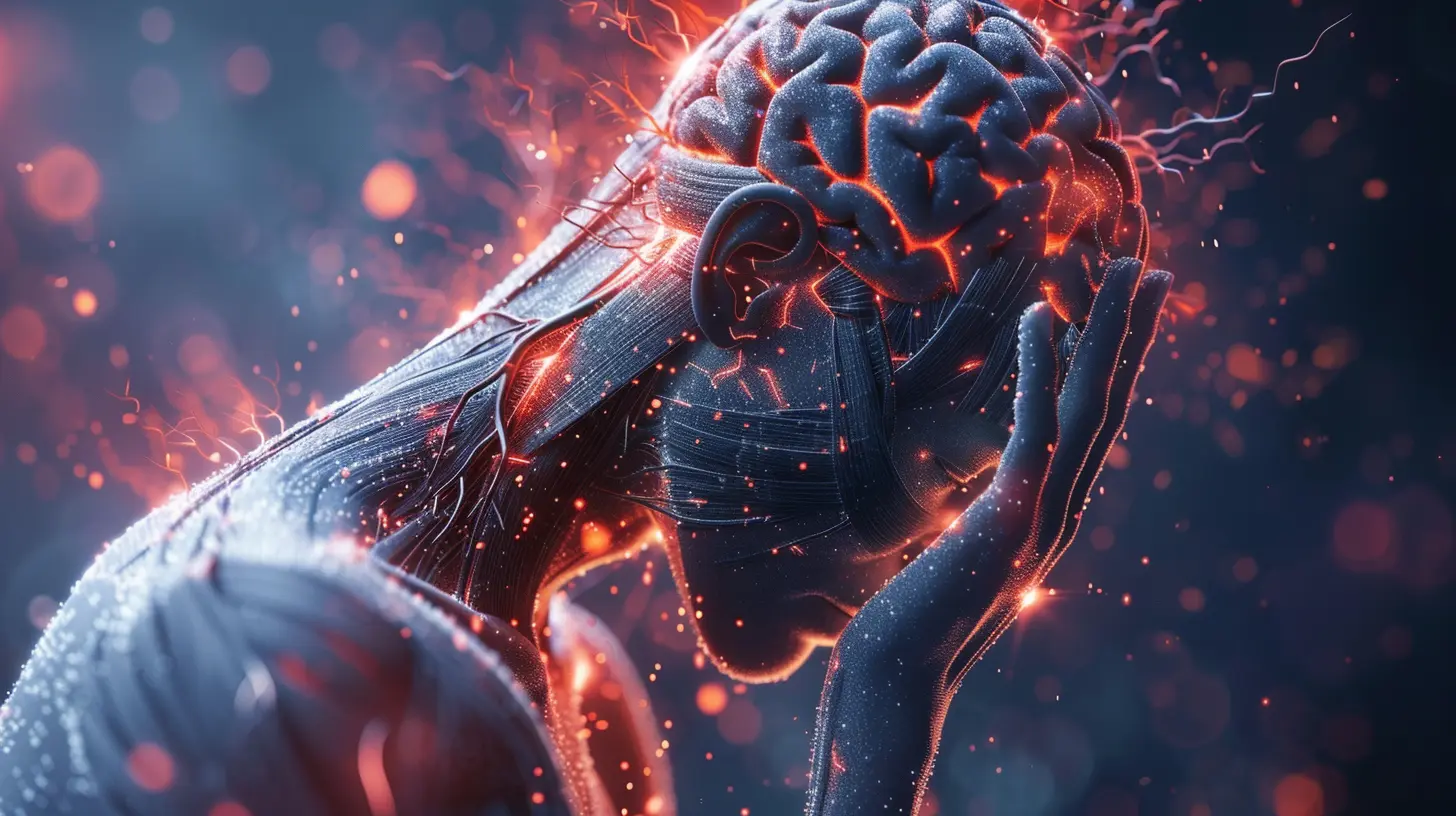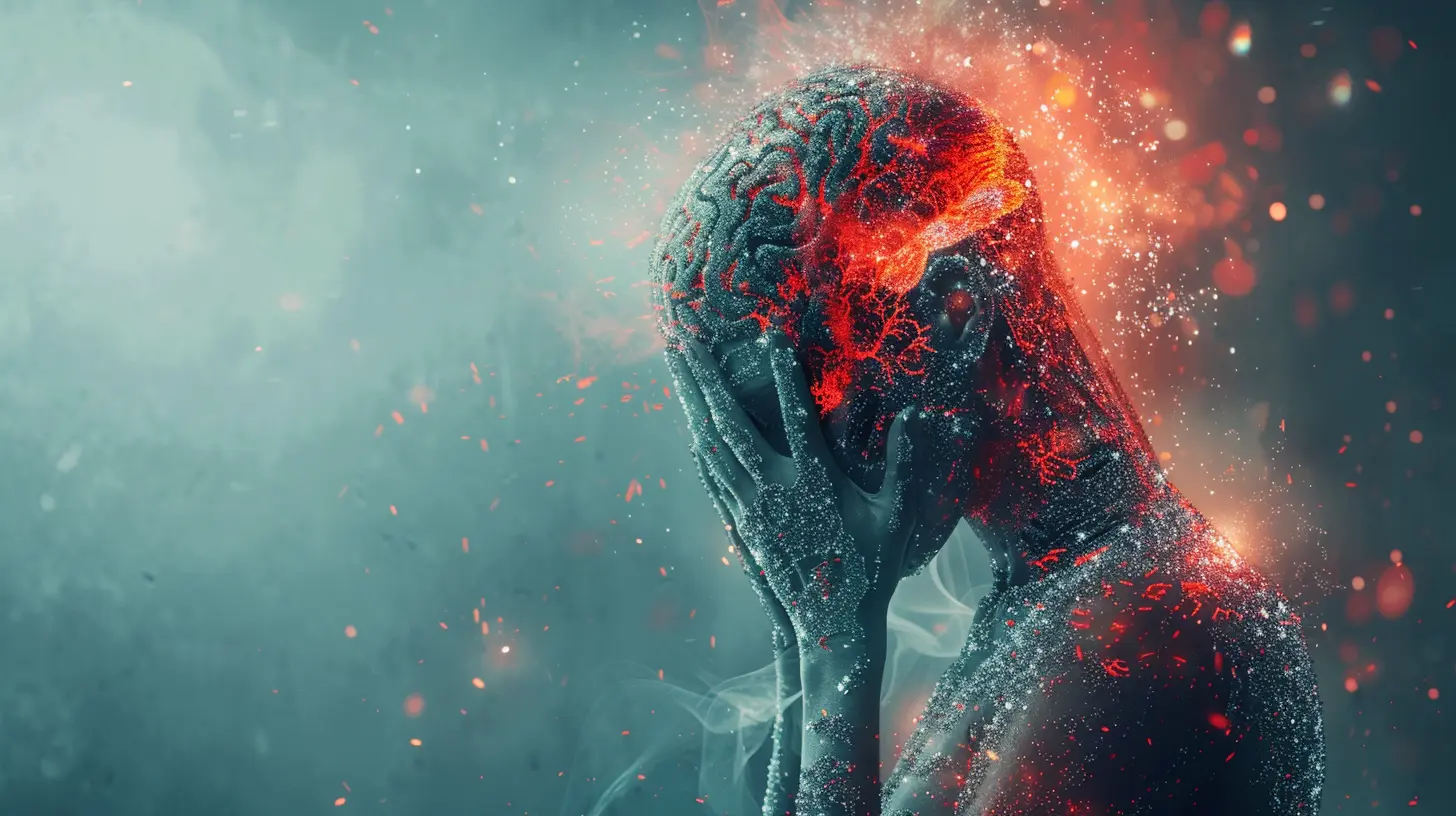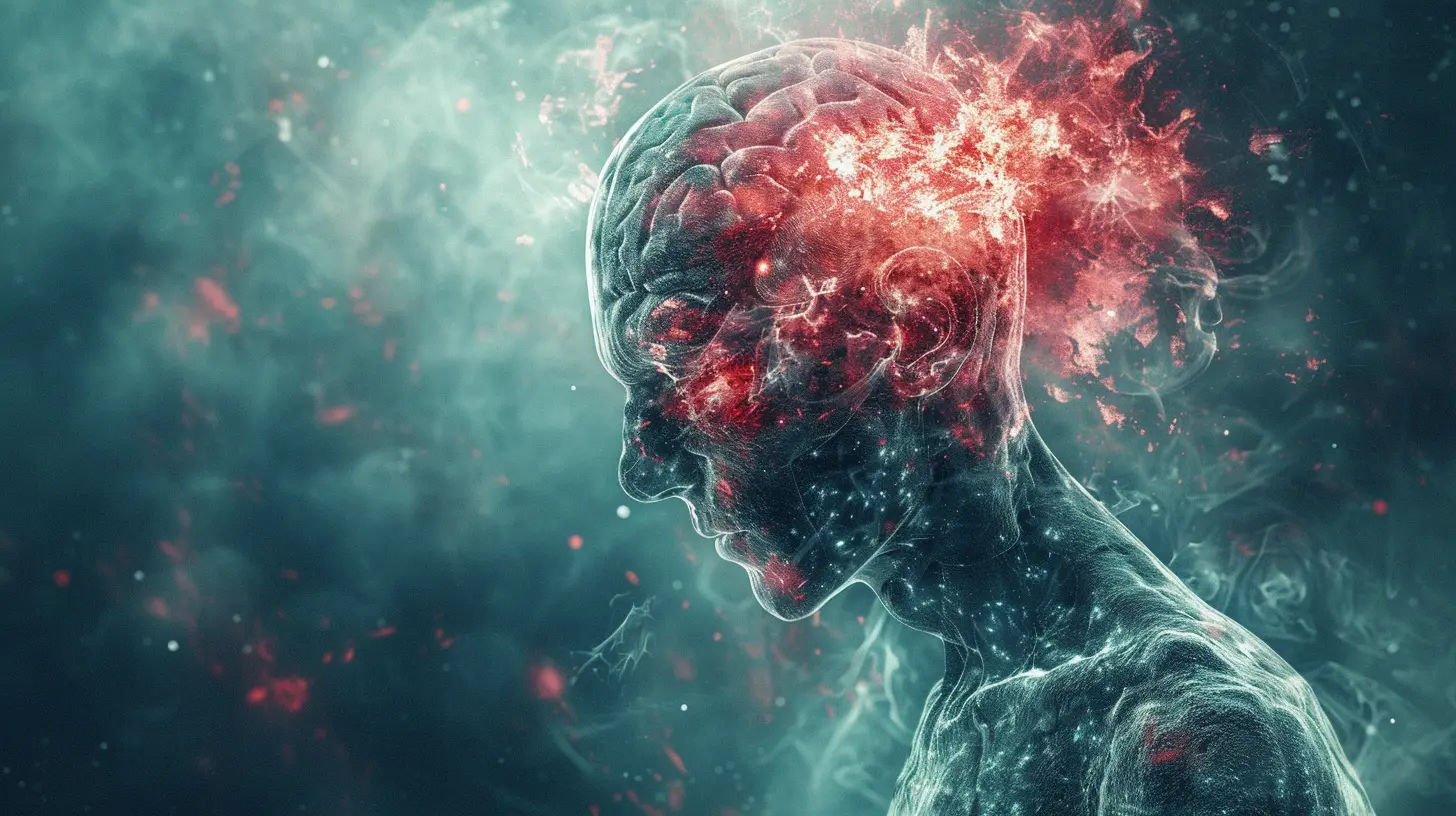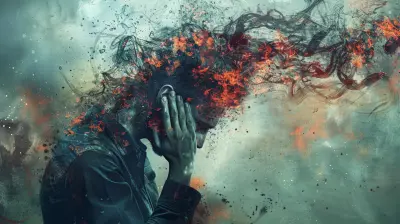How Traumatic Brain Injury Can Lead to Psychiatric Disorders
21 October 2025
Let’s cut straight to the chase—traumatic brain injury (TBI) doesn’t just shake up your brain for a moment; it can flip your whole mental world upside down. One minute you’re cruising through life, and the next, a head injury has triggered a landslide of emotional and cognitive challenges you never saw coming.
Sounds scary, right? But here’s the thing: understanding the link between TBI and psychiatric disorders is the first big step toward managing, healing, and, dare I say it, thriving again.
So grab a cup of coffee (or tea, no judgment), get comfortable, and let’s untangle this complex web of minds and injuries.
What Exactly Is Traumatic Brain Injury (TBI)?
First off, TBI is not one-size-fits-all. It happens when a sudden jolt, bump, or blow to the head disrupts normal brain function. This could be from a car accident, a fall, a sports injury, or even something as seemingly minor as hitting your head on a doorframe. It ranges from mild (like a concussion) to severe (like prolonged unconsciousness or brain bleeding).The brain is basically command central for everything you feel, think, or do. So when it takes a hit, the ripple effects go deep—physically, cognitively, and emotionally.
The Hidden Fallout: Why TBI Is More Than Just Physical
Think of your brain like a city. You've got highways (neural pathways), neighborhoods (brain regions), and electricity grids (neurotransmitters). A TBI can knock out traffic lights, destroy roads, and plunge entire areas into darkness. It's not always visible from the outside, but inside, chaos can reign.That chaos? It’s often the perfect storm for psychiatric disorders.
Psychiatric Disorders After TBI: A Growing Concern
It’s not just a headache or brain fog we’re talking about. TBI can significantly raise the risk of developing serious psychiatric disorders. We're talking:- Depression
- Anxiety disorders
- Post-Traumatic Stress Disorder (PTSD)
- Bipolar disorder
- Psychosis and schizophrenia-like symptoms
- Personality changes
Now, not everyone with a TBI will develop a mental health condition—but the odds significantly increase, especially if the injury is moderate to severe.
Let’s Break It Down: How Exactly Does TBI Lead to Mental Health Issues?
So, how does a bump on the head turn into a daily battle with your emotions or sense of reality? Good question. Let’s dive deep.1. Structural Changes in the Brain
When your brain is physically injured, certain areas—especially those in charge of mood and behavior (hello, frontal and temporal lobes)—can get impaired. This messes with the normal functioning of your:- Amygdala (emotion processing)
- Hippocampus (memory)
- Prefrontal cortex (decision-making and impulse control)
Damage here can fuel mood disorders, aggression, impulsivity, and emotional instability.
2. Neurochemical Imbalances
Your brain runs on chemicals like serotonin, dopamine, and norepinephrine. A TBI can throw these out of whack, just like a coffee machine that suddenly starts spitting out lemon juice. Imbalances in these chemicals are strongly linked to depression and anxiety.3. Psychological Reaction to the Injury
Imagine waking up one day and not feeling like yourself anymore. Maybe your memory is shot, or your emotions are all over the place. That realization alone can trigger feelings of helplessness, worthlessness, or panic. For many, this psychological stress becomes just as debilitating as the injury itself.4. Isolation and Social Withdrawal
Let’s face it—after a brain injury, your social life often takes a hit. Friends don’t always understand, work becomes a struggle, and even family might treat you differently. That isolation? It can be fertile ground for depression and other mood disorders.Common Psychiatric Conditions Linked to TBI
Let’s take a closer look at the heavy hitters in the world of post-TBI mental health.Depression: The Uninvited Guest
Depression is the most common psychiatric disorder following TBI. Studies estimate that nearly 50% of people with TBI experience depression within a year of injury.What's it feel like? Think of carrying a 50-pound backpack of sadness, fatigue, and hopelessness everywhere you go. And try climbing the stairs of life with that on.
Anxiety: When Your Brain Hits the Panic Button
Post-TBI anxiety isn’t just worrying about little things. It’s full-blown panic attacks, constant fear, and obsessive thoughts that won’t quiet down. It can be tied to changes in brain chemistry or simply the psychological trauma of the injury.PTSD: Trauma Within Trauma
If the brain injury itself was caused by a traumatic event (like a car crash or physical assault), then PTSD can sneak into the picture. Flashbacks, nightmares, intense fear—it’s like your mind is stuck watching a horror movie on loop.Psychosis: When Reality Blurs
In rare but serious cases, TBI can lead to psychosis or schizophrenia-like symptoms. This is more likely if there’s a family history of mental illness, but even without one, some individuals report hallucinations or delusional thinking after a brain injury.Personality Changes: Who Am I Now?
This one’s tough. Some people notice that they’ve “changed” after their injury. Maybe they’re quicker to anger, more impulsive, or emotionally numb. These shifts can be unsettling—not only for the person but for everyone around them.Risk Factors That Increase the Odds
Not all TBIs lead to psychiatric disorders. But certain things up the ante:- Severity of the injury
- Multiple TBIs (hello, athletes and veterans)
- History of mental illness
- Lack of social support
- Time since injury (some symptoms show up months or years later)
Getting the Right Help: Diagnosis and Treatment
Here’s the good news—psychiatric disorders following TBI are treatable. But getting there requires a bit of detective work.Diagnosing Mental Health After TBI
Doctors will usually run a mix of evaluations:- Neuropsychological testing
- Brain imaging (MRI, CT scans)
- Mood and behavior assessments
- Interviews with friends or family (because sometimes you're not the best judge of your own changes)
Treatment Options
There’s no one-size-fits-all, but here are the most common tools in the toolbox:1. Medication
Antidepressants, anti-anxiety meds, mood stabilizers—they can help restore the brain’s chemical balance. But it’s all about fine-tuning the dosage and watching out for side effects, especially in a sensitive post-TBI brain.2. Talk Therapy
Cognitive Behavioral Therapy (CBT) is often a game-changer. It helps people identify negative thought patterns and replace them with healthier ones. Plus, it’s a safe space to vent and process.3. Neurorehabilitation
Therapists who specialize in brain injuries can help retrain cognitive skills, improve memory, and boost emotional regulation. Think of it like physical therapy—but for your brain.4. Support Groups
Sometimes, the most powerful healing comes from saying, “Me too.” Meeting others who’ve been through similar experiences can chip away at that isolating feeling and promote hope.Living With the New Normal
Look, life after TBI isn’t about going back to who you were—it’s about growing into who you can be.That sounds cheesy, I know. But many TBI survivors discover strength, resilience, and depth they didn’t know they had.
The key is not to ignore the psychiatric side effects. They’re not imaginary. They’re not “in your head” in the dismissive way people say it. They’re real, and they deserve attention, compassion, and care.
Final Thoughts: You Are Not Alone
If you or someone you know is struggling after a brain injury, whether it happened a week ago or a decade ago, don’t brush off psychiatric symptoms. Don’t chalk them up to “just stress” or “just part of recovery.” These are signs worth listening to.Getting help is not a weakness. It's a power move. It's choosing to protect your peace and your future.
Your brain might be bruised, but your spirit? That’s still very much alive and kicking.
all images in this post were generated using AI tools
Category:
Psychiatric DisordersAuthor:

Paulina Sanders
Discussion
rate this article
1 comments
Yazmin Kearns
This article effectively highlights the crucial link between traumatic brain injuries and the onset of various psychiatric disorders. Very insightful!
November 7, 2025 at 6:04 AM


